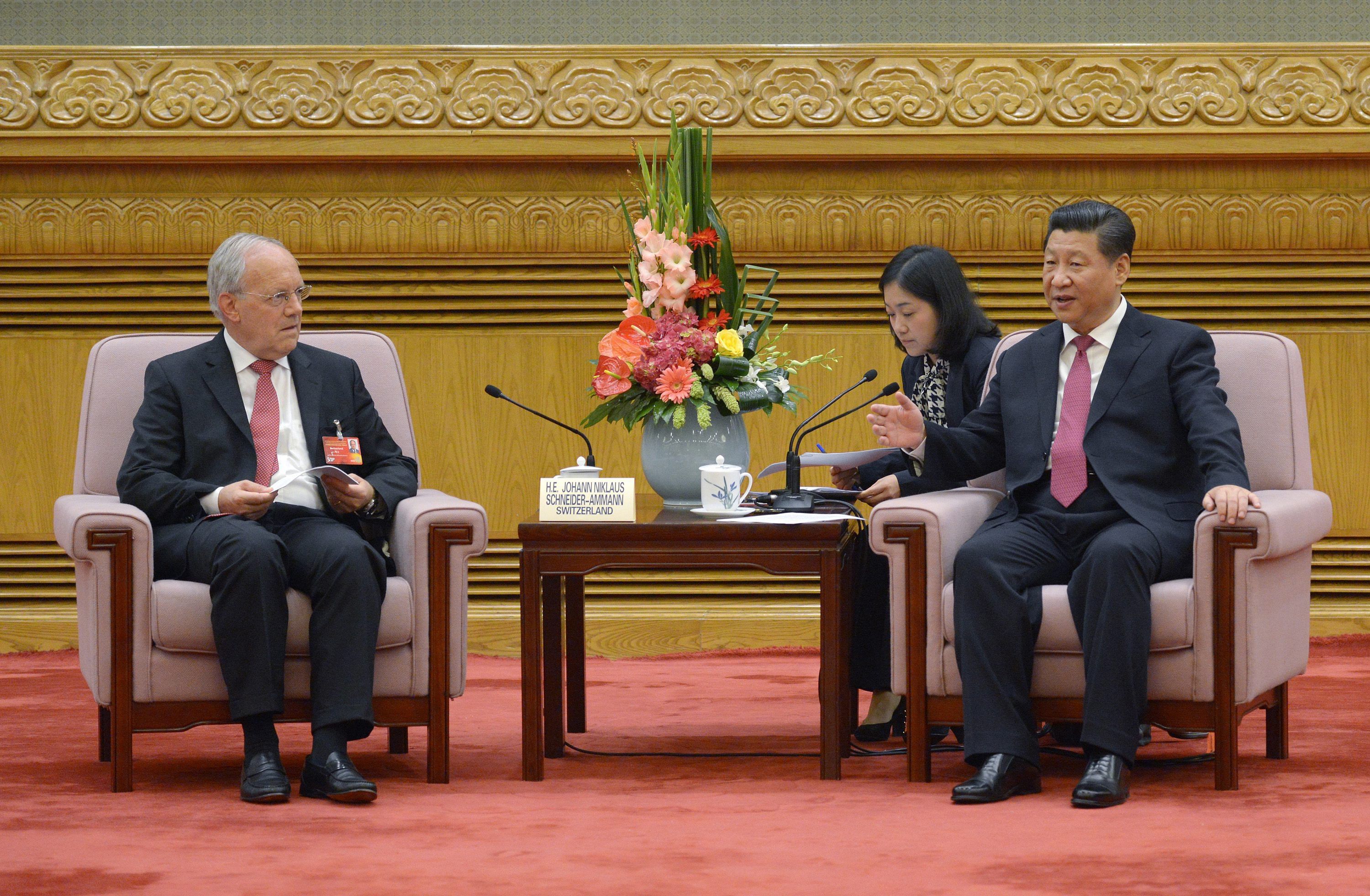Throughout its long imperial history, China advanced its influence by keeping the barbarians in continuous rounds of debt. The idea of regional harmony was founded on economic hierarchy, of course, with China at the top.
The Asian Infrastructure Investment Bank (AIIB) serves the same objective today. It will affirm the unequal trade relations between China and its neighbours, it will enmesh them into a web of transport infrastructure with China at the centre and, most of all, it will further upset the regional balance of power.
"But we need that infrastructure so badly," two Asian ambassadors retorted when I made that same argument recently at a meeting in Seoul. I understand that point, but how can one expect roads and railways to benefit poorer countries if China sticks to its ambitious industrial and trade policy? Most of China's neighbours are already stuck in trade deficits with China. In the past five years, China accounted for 84 per cent of the industrial growth in Asian developing countries and 75 per cent of the growth in industrial exports.
That has everything to do with China's policy of competitive connectivity. It does not seek to stop globalisation, but to bend it in its favour, to make sure its emerging industries gain ground faster than others. Just last year, it handed out US$188 billion (S$253 billion) in credit and US$182 billion in tax rebates to help its factories export. That's two times today's value of India's total exports of manufactured goods.
But, then, it seems to be great for needy countries that China supplies them with cheap consumer goods and turns part of its trade surplus into investments. In the short term, that might be so, but it also impels other countries into a role of raw materials supplier.

Over the past decade, the share of raw materials in Asia's exports to China grew from 54 per cent to 68 per cent. It also makes it very hard for populous countries like India and Indonesia to create much- needed jobs in their manufacturing sectors.
I don't expect this situation to change. Chinese officials are often quick to insist that the country's current account surplus has shrunk and that some of its manufacturing now relocates to countries like Cambodia. But even in labour-intensive exports, China represents about three-quarters of developing Asia's growth - despite rising wages. The surplus of trade in goods continues to jump from one record to the other and so does the share of industrial production that is exported. Chinese factories are not getting less but more dependent on exports.
The AIIB is a master stroke of economic diplomacy. The debate about its possible benefits distracts from the imbalanced economic partnerships to the vague benefits of influencing it from inside and the bad habit of the United States and Japan to cling to their privileges in the World Bank, the International Monetary Fund and the Asian Development Bank (ADB) . It makes them look pathetic and China appear magnanimous, while it is essentially also just seeking to advance its own selfish interests.
The whole discussion about whether or not to join the AIIB misses the point.
Rather than scrambling to join it as a quick fix, those who believe that regional institutions are important to promote Asia's development should work harder to reform the existing ones such as the ADB and the United Nations Economic and Social Commission for Asia and the Pacific.
They should be made more inclusive and more effective in setting a growth agenda for the whole region instead of the regional power that has the deepest pockets. They would focus not just on the spreading of infrastructure, but also on the spreading of benefits: durable industries, innovation, jobs, trade revenues.
This is a huge challenge. It would be naive to take for granted that it will work, but so would be the assumption that the new bank is an alternative.
This is also in the interest of those concerned with restoring the balance of power and to embed a strong China into a strong region. The alternative for effective regional cooperation will inevitably be competitive multilateralism, which will rip up the fragile regional architecture as we know it today, give China more opportunities to exploit the divisions and thus make the political situation in the region only more volatile - and possibly violent.
•The writer is a professor of international politics at the Vrije Universiteit Brussel. His most recent book is China's Coming War With Asia (Polity, 2015).
